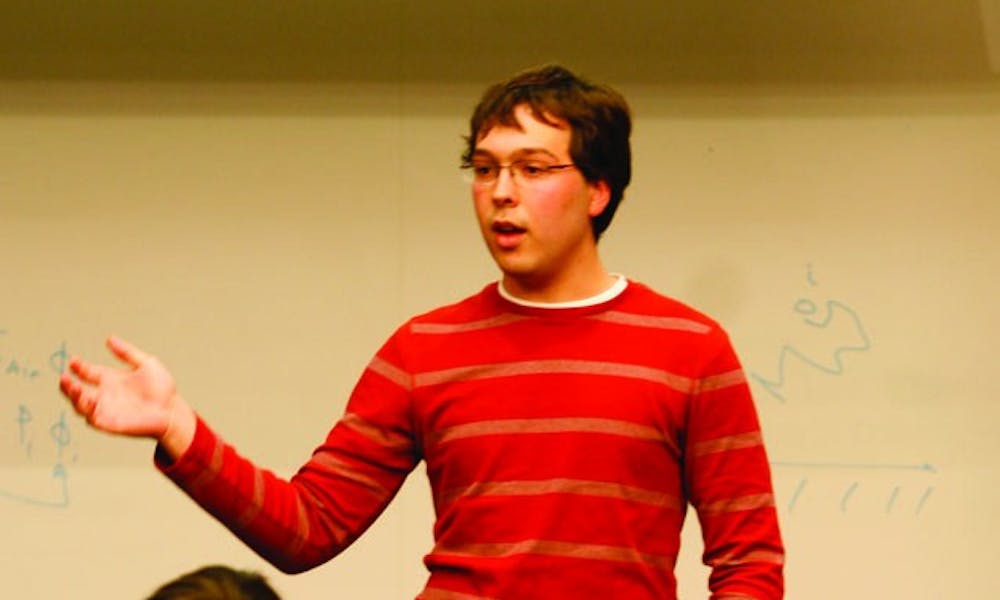Duke Student Government worked on a lengthy agenda at its meeting Wednesday night, passing several important pieces of legislation.
A large portion of the meeting was spent on the proposal for increased transparency of the Student Organization Finance Committee. The proposal was later referred to the Student Affairs Committee after a lengthy debate.
A proposal to amend the executive bylaw was rejected after another heated discussion. The amendment would have prohibited the attorney general from being a candidate in any election held within six months of being attorney general. It would have served to minimize a conflict of interest—one of the attorney general’s primary roles is to facilitate DSG elections.
“I held a platform that called for the attorney general position to make sure the system does not allow for potential unfair advantage or corruption,” said Executive Vice President Gregory Morrison, a junior. “The Senate did not agree with the amendment I proposed and I hear them loud and clear and will work at coming up with a more suitable amendment.”
Will Passo, DSG vice president for Durham and regional affairs, said “procedural issues” took more time than planned.
“Frequently, things like that tend to overshadow the good things that we do here in DSG since we don’t spend as much time on them,” he said. “This only occurs because the majority of us usually unanimously agree on [the good things] and so they go unnoticed.”
Passo expressed concern for overshadowing the work of Durham and Regional Affairs Senator Chris Brown, a freshman, who worked on Faculty Outing program—an initiative that improves interaction between faculty and students in an off-campus setting. The proposal noted examples such as discussions with Mike Munger, chair of the political science department and former Libertarian candidate for N.C. governor, group outings to a historic North Carolina town, lectures on how southern race politics have evolved over the years and trips to Durham public school to help with Lego robot projects.
At the meeting, Brown gained approval for expanding the Faculty Outing Program to all undergraduates, instead of restricting it to freshmen.
“[Brown is] only a freshman and that took a lot of effort,” Passo said. “And despite the fact that there we only spent 10 minutes on [discussing the Faculty Outing program], that’s something that’s going to be with the student body for a long time. I don’t want a freshman who did something so great to be overshadowed by a procedural debate and go unnoticed when he worked so hard.”
A Durham mayoral and city council forum was approved to keep students more informed on issues they will be voting on in local elections this November. Overall, Morrison said great progress was made in regards to Duke and Durham relations and the meeting was very productive.
“We definitely had an exciting meeting in which the Senate debated and considered a great number of issues,” Morrison said. “There were a lot of senators, including freshmen, who had a lot to say. I had a great feeling about the thoughtful debate.”
In other business:
DSG endorsed an off-campus living tutorial for rising seniors, which will address finance and safety issues for living off campus.
The Creative Writing Group, Kol Kachol, Duke Refugee Aid, Origami Club at Duke and the National Society of Leadership and Success all gained group recognition status from DSG. In addition, Duke Fashion Magazine and Duke Libertarians were granted charters.
Get The Chronicle straight to your inbox
Signup for our weekly newsletter. Cancel at any time.

